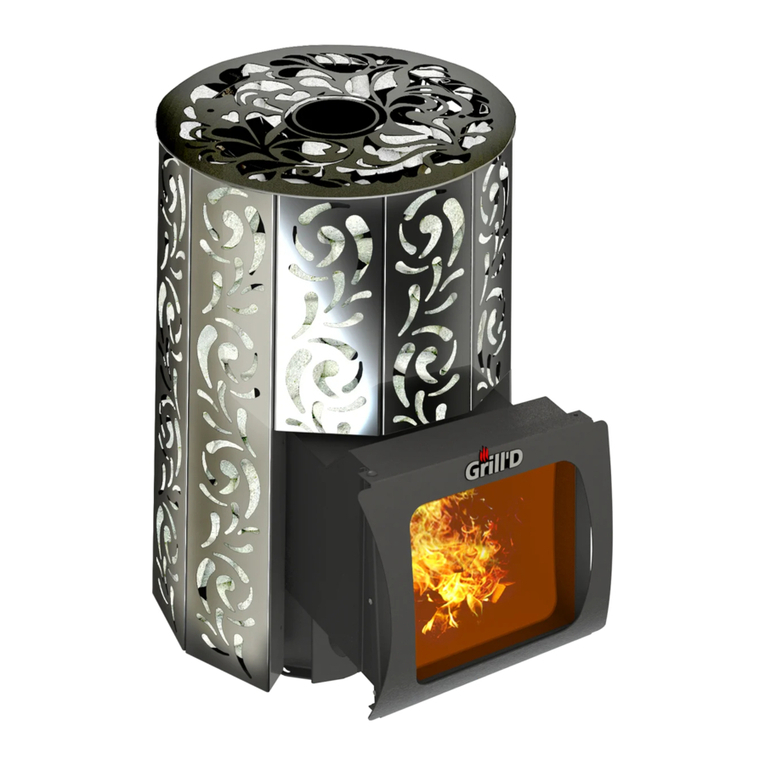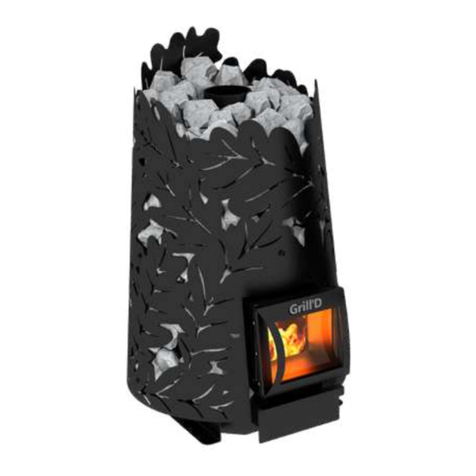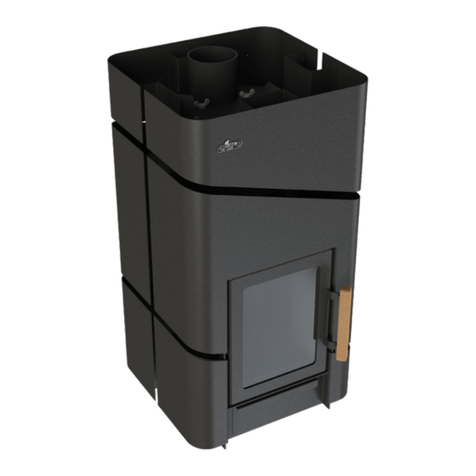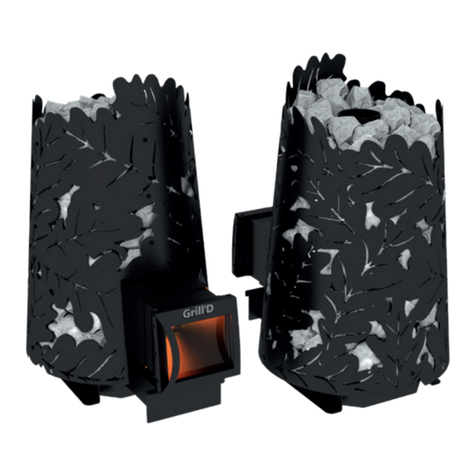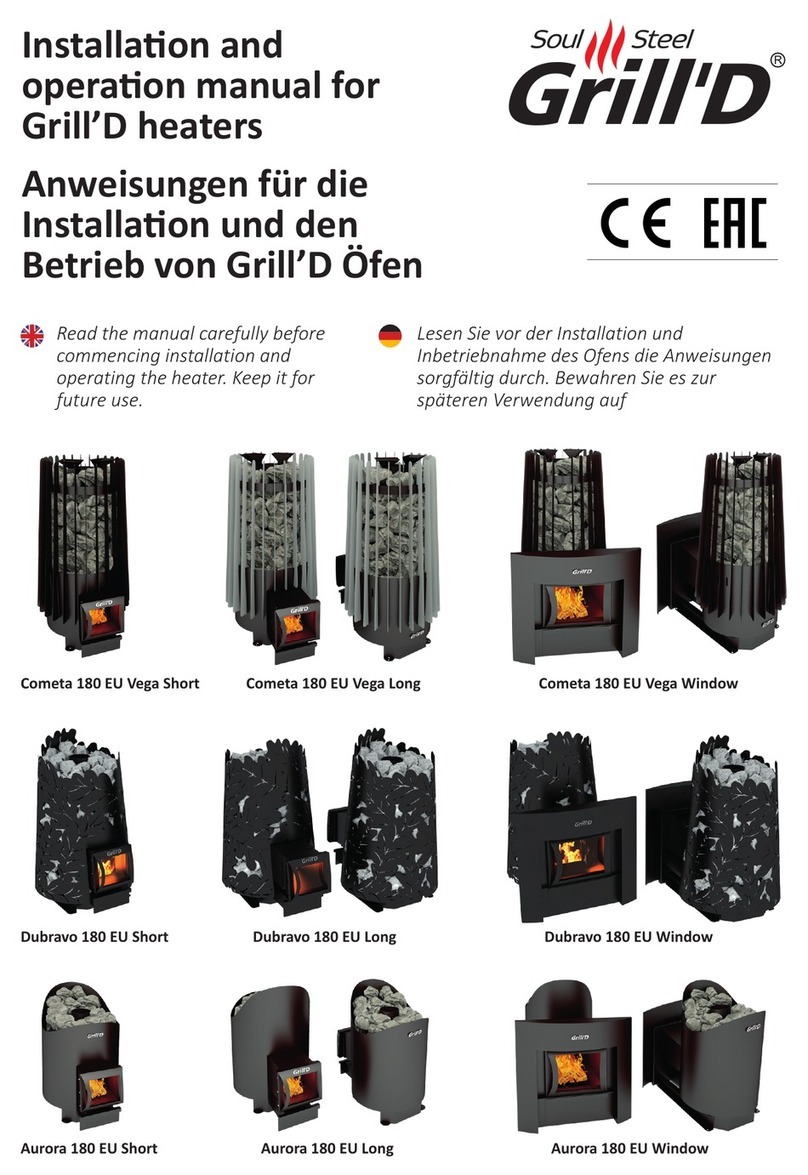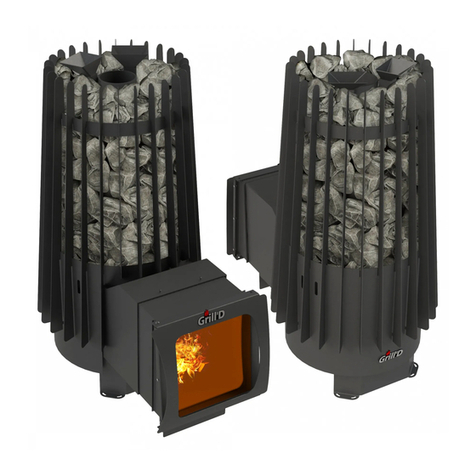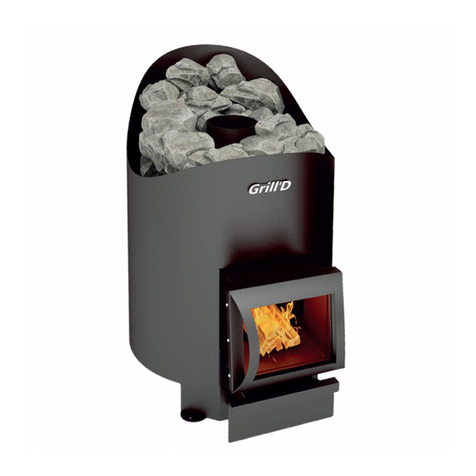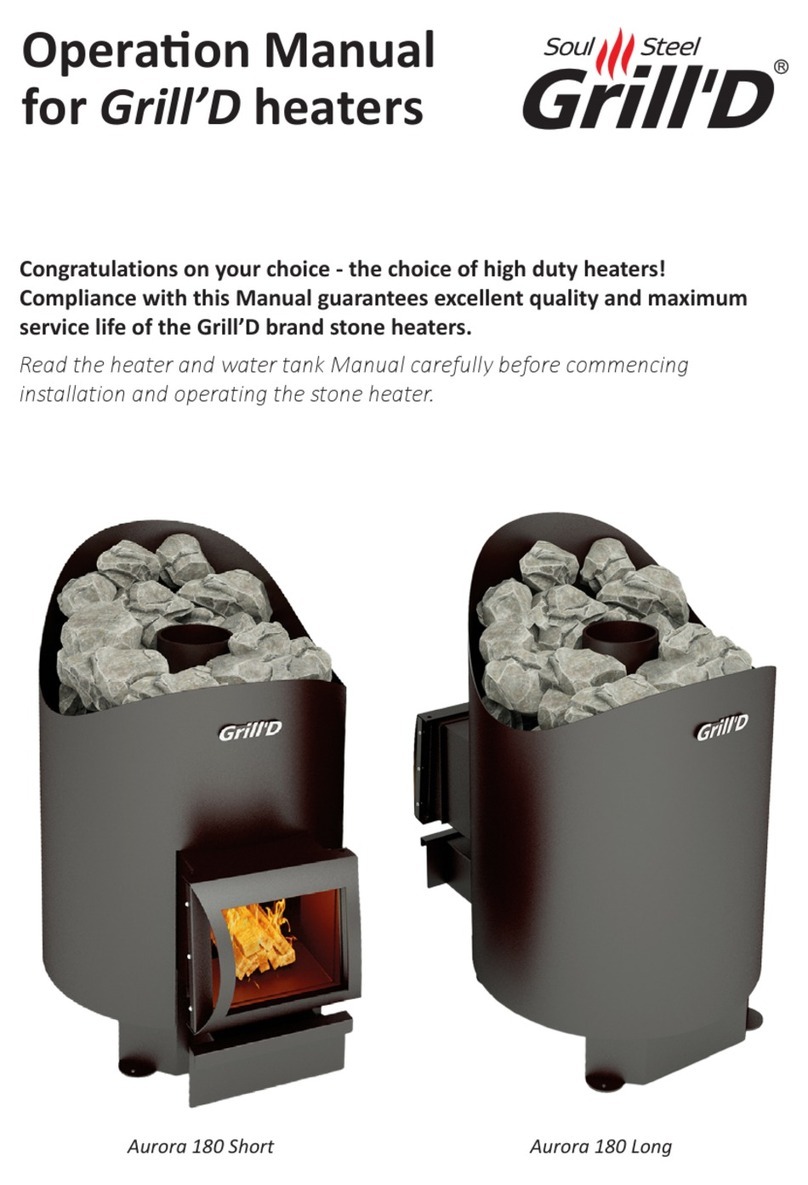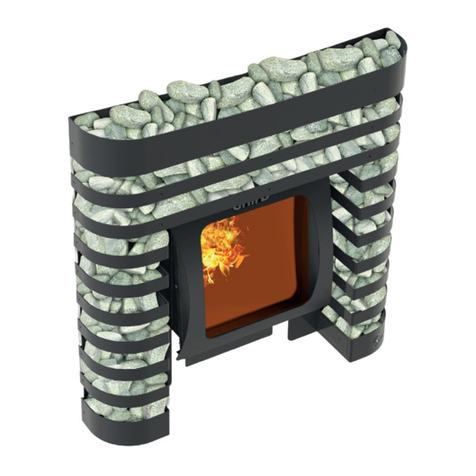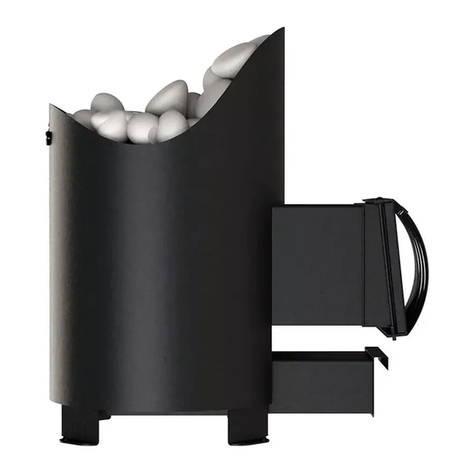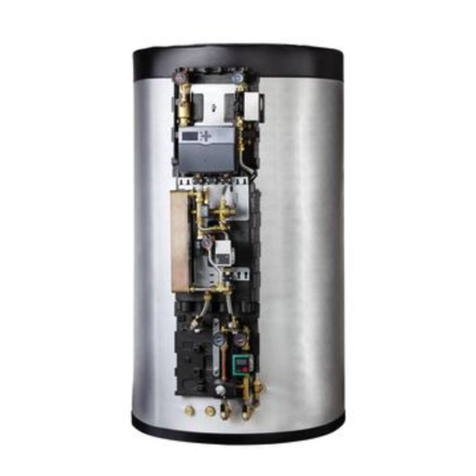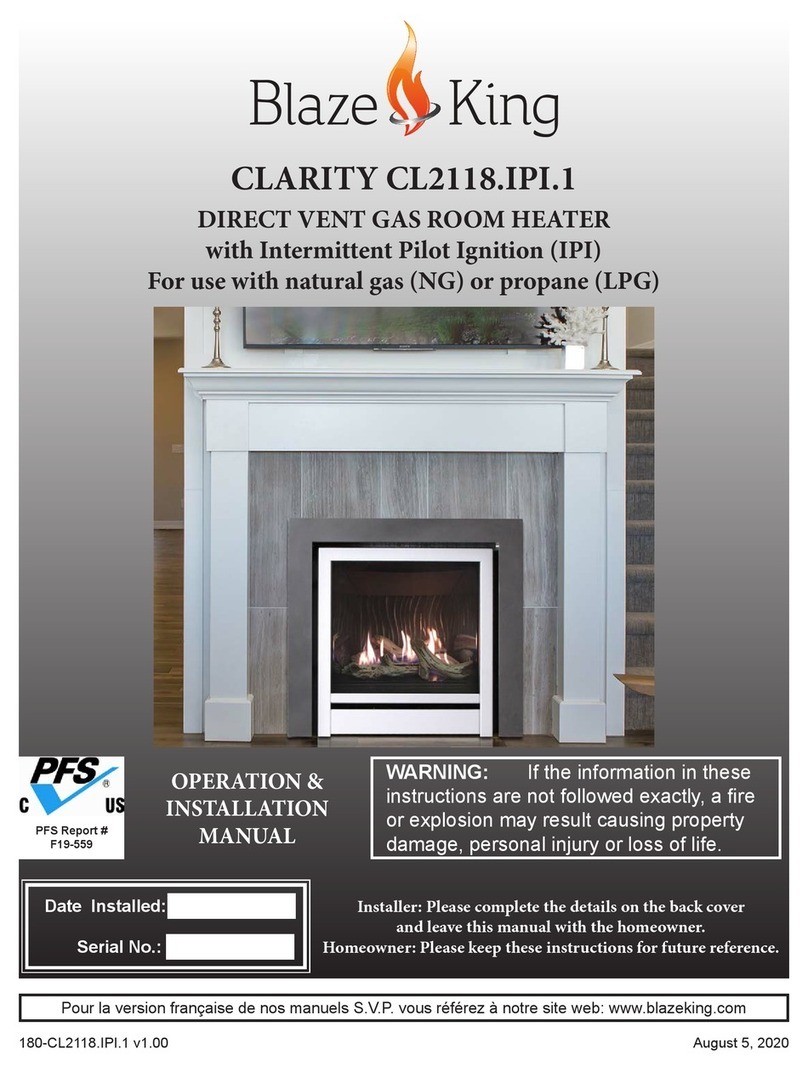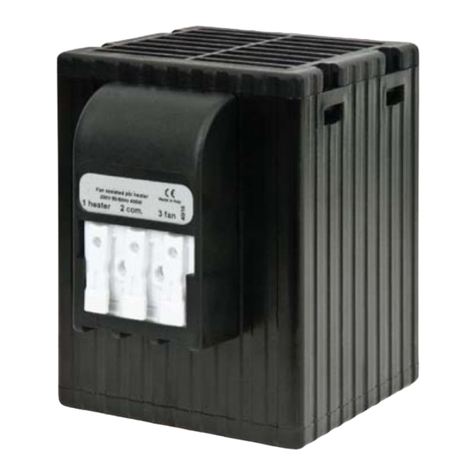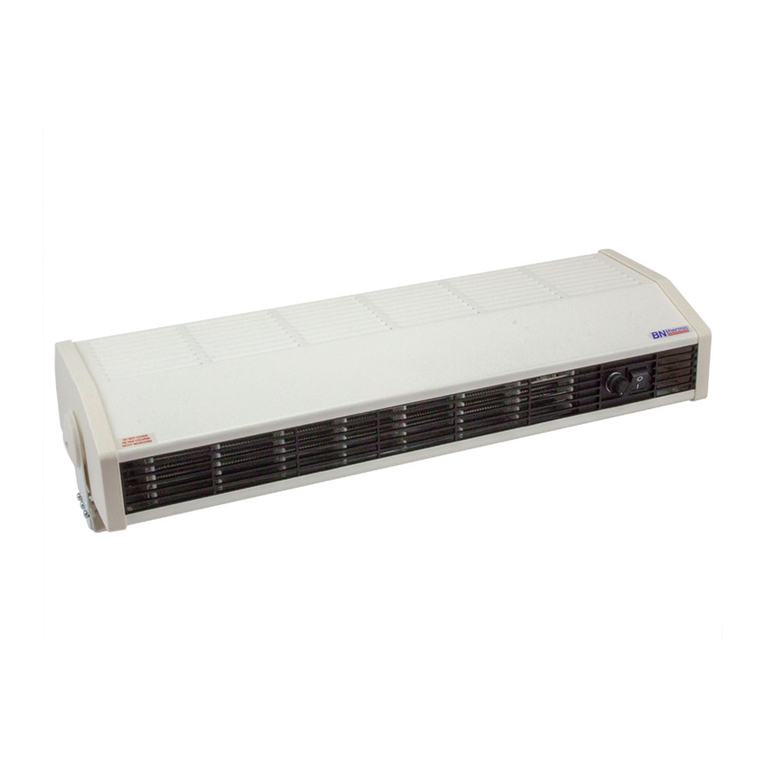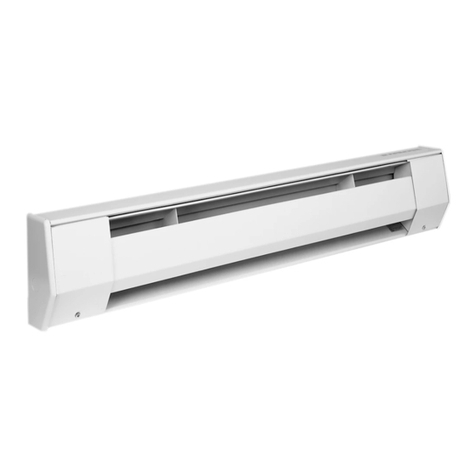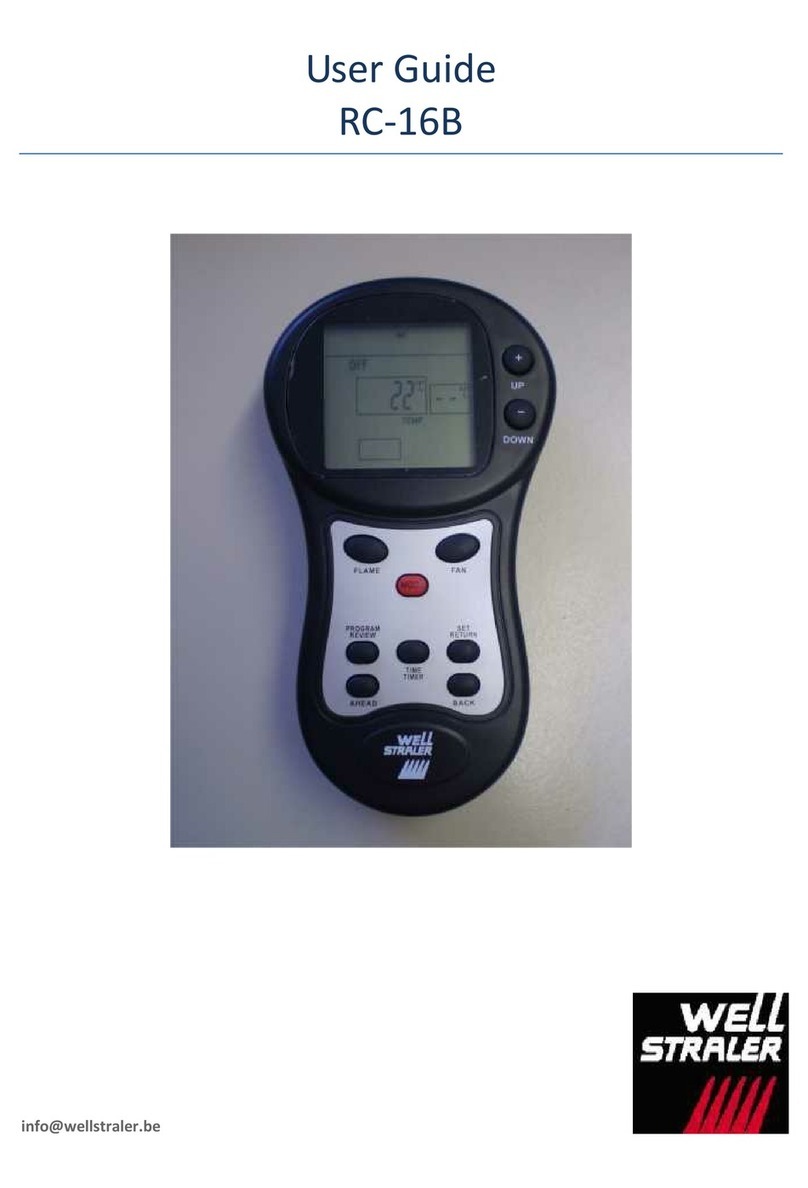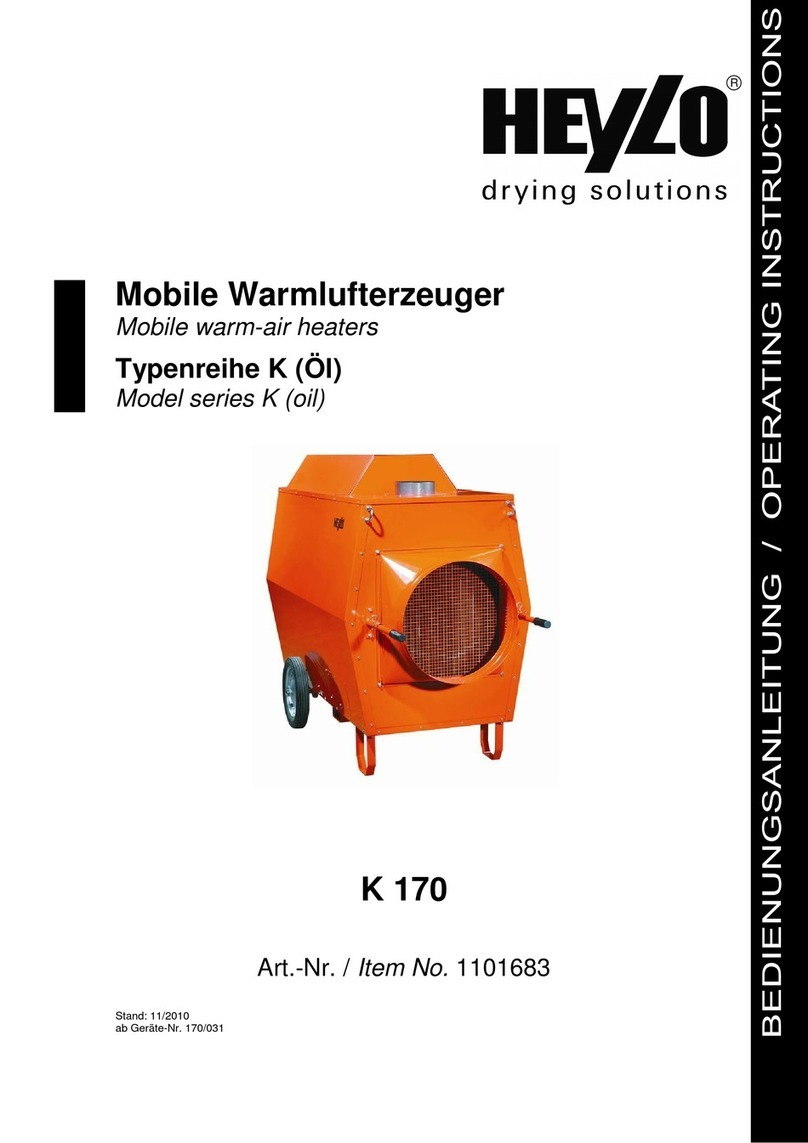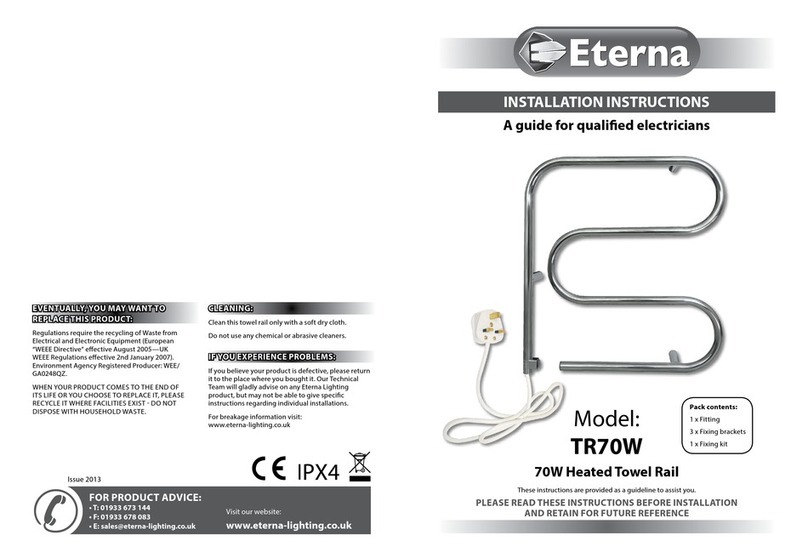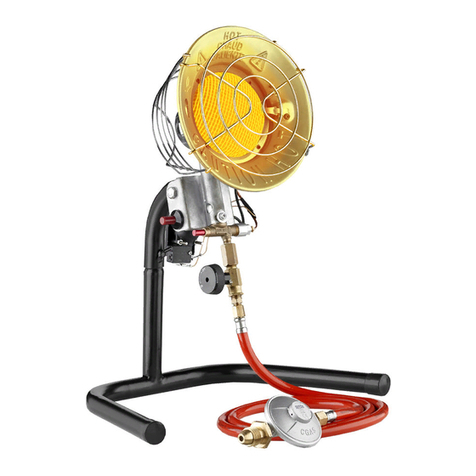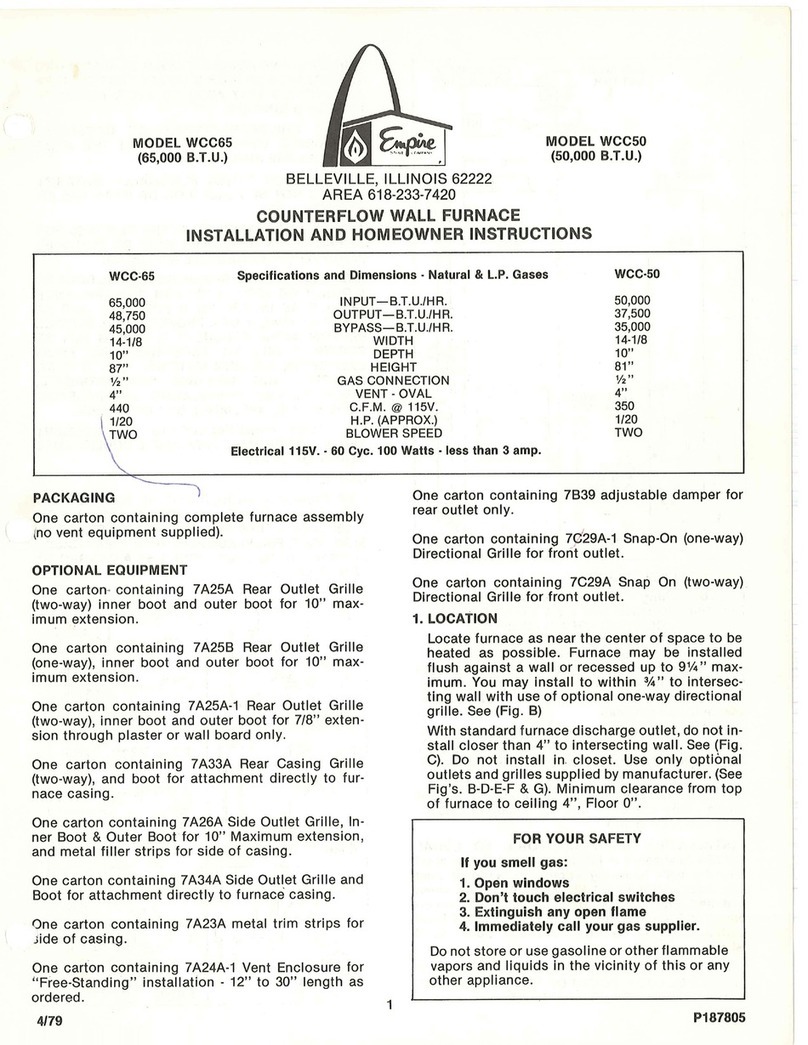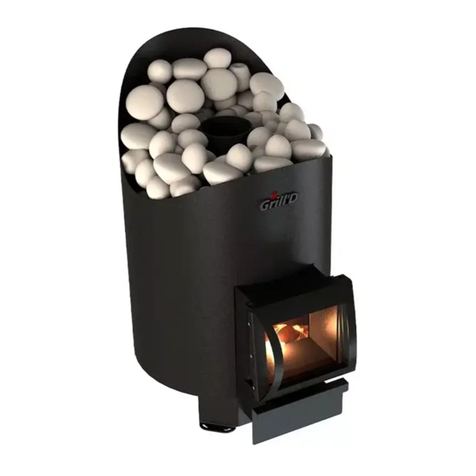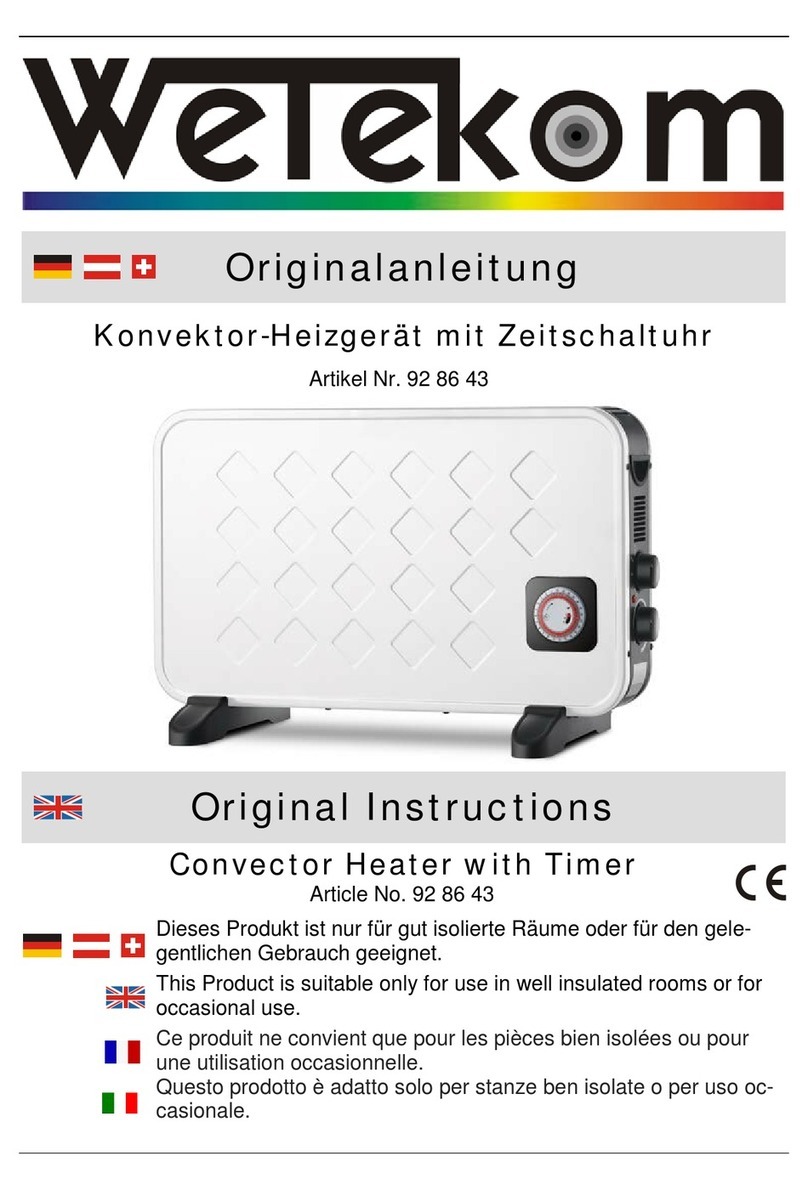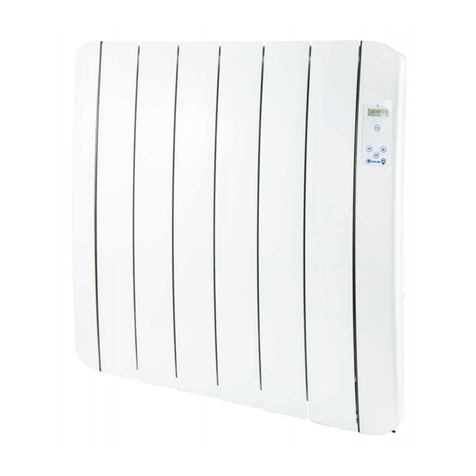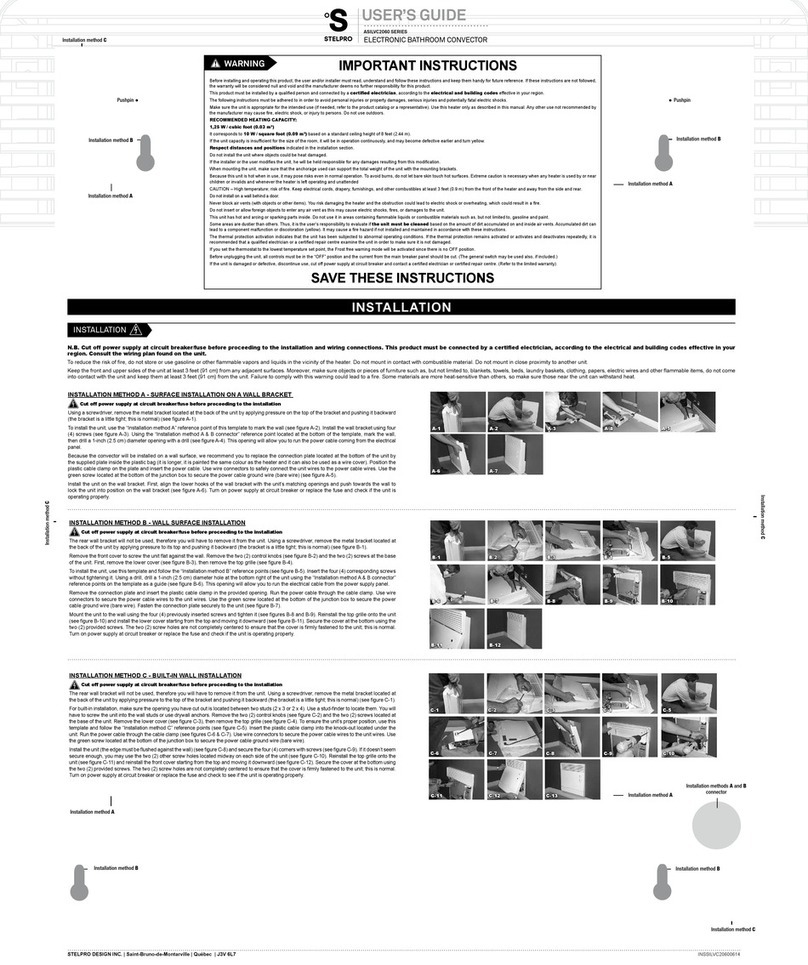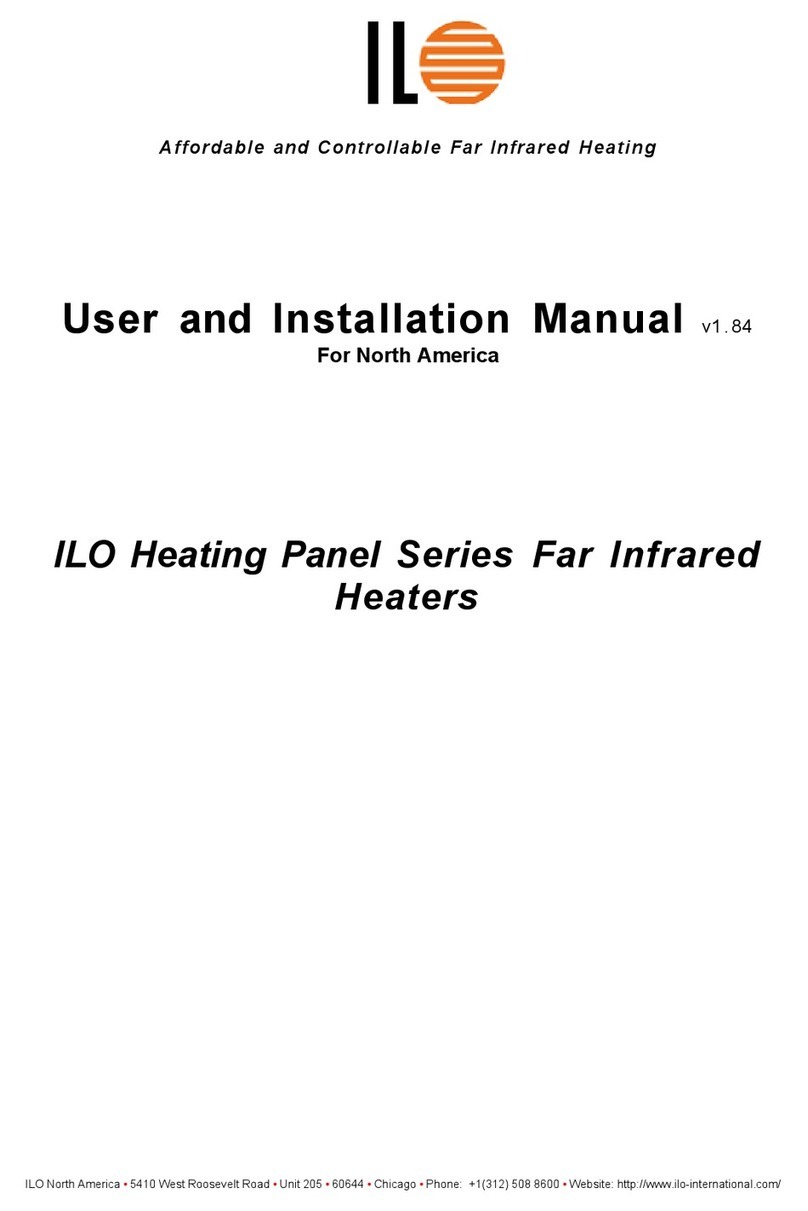
8
thickness that can withstand any esmated loads. High-alloyed corrosion-resistant steel is
used for the above heater elements in Pro models.
The eecve design for heang up the stones and the steam room is due to numerous bends,
heat-conducng structural elements, which increase the heat dissipaon area. Also, air con-
vecon between the heater rebox, radiators, and protecve shield plays a signicant role.
Heater models of Long version are equipped with extended heang ue that allows the heater
to be red from the adjacent room. Some of the Grill’D heater models of Long version are
equipped with a telescopic heang ue, which allows adjusng the length of the ue depend-
ing on the wall thickness.
Note: dimensions of heaters with a telescopic heang ue are shown in Table 1 and Appen-
dix 1 as a range of values.
All heater models can be oponally equipped with special reinforcing devices (refer to Appendix
4) made of heat resistant high-alloyed corrosion-resistant steel, that enhance combuson and
addionally protect the heater rebox from destrucon due to exposure to high temperature.
The devices have ducts for supplying addional combuson air, and when it enters the rebox,
the air passes parally above the re into its upper part, where post-combuson of ue gases
occurs. Addional heat is generated during this process, thus enhancing the heater’s eciency.
There is a grate at the boom of the heater (refer to Appendix 4). Ash falls through the sheets of
the grate into the ash drawer, which allows convenient cleaning of the heater without interrup-
on of burning. The grate is one of the most thermally loaded parts of the heater, it is fabricated
of high duty rolled steel with a thickness of 5 mm.
The heater rebox door is fabricated of steel and thermal glass (except the mini
models). The door opening angle is sucient for convenient loading of fuel and allows visual
monitoring of the burning process due to the availability of the glass. The outer surface of the
heater is covered with an-corrosion heat- resistant enamel.
IMPORTANT! Unauthorized modicaon of the heater is prohibited. The manufacturer
reserves the right to make modicaons to the design of the heater that do not impair its
consumer properes.
Cometa Vega series
Removable lid allows accessing to the inner compartment of the stone heater and also
serves as a steam restricng device. Water is supplied to the inner compartment of the
stone heater through funnels.
The heater allows obtaining several steam modes:
Fine steam mode is a mode for special ultralight steam obtained by feeding water through
the funnels to the inner compartment of the stone heater, the stones in which are heated
to temperatures above 400 °С. Given the stone heater lid is installed conguously and the
pressure is growing, the steam escapes through a nozzle located on the lid imitang the
singing of blizzard.
Tradional steam mode is achieved by means of pouring water onto outer stone heater, or
into the inner compartment of the stone heater at the stone heater lid removed.
2.3. Heater commissioning
It is recommended to preheat the heater prior to operaon. Compound for metal protecon
and volale components of the heat-resistant enamel evaporate as a result of heang up of
the heater.
Note: remove all packing elements and paper sckers before the rst heang up of the heater.
The preferable opon for heang up is outdoors, away from combusble surfaces and mate-
rials, in compliance with re safety measures and safe work pracces.
